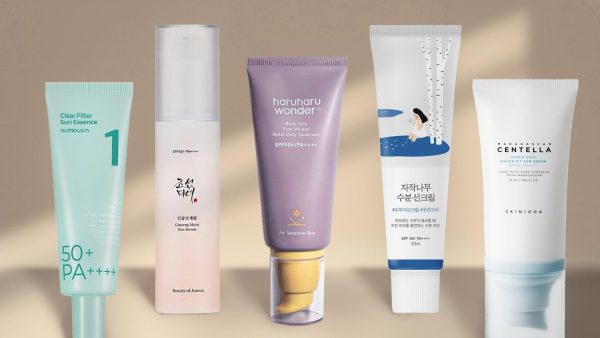
Korean sunscreen
Korean sunscreen has gained immense popularity since Korean skincare products took the beauty world by storm. I mean, even if you know nothing about skincare, chances are that you will learn about it from the hype of Korean beauty products.
Korean sunscreen is now a staple in skincare routines worldwide for its lightweight texture, innovative formulations, and superior protection. In this guide, we’ll delve into the reasons behind the widespread acclaim of Korean sunscreen and explore what sets it apart from traditional sunscreens.
Understanding Korean Sunscreen
Korean sunscreen is not just about sun protection because, before it came into the limelight, we’d always had sunscreens. But unlike the older sunscreens that often leave a greasy or white cast on the skin, a Korean sunscreen with its lightweight, fast-absorbing formulas will most likely not leave your face greasy or with a white cast. It is also important to note that Korean sunscreen though not the first to do so, popularized wearing sunscreen under makeup.
Key Features of Korean Sunscreens
1. High SPF Protection
Korean sunscreens typically offer high Sun Protection Factor (SPF) ratings, ranging from SPF 30 to SPF 50+ and PA++ or PA++++ in some cases. This ensures robust protection against harmful UVB rays, which are primarily responsible for sunburns and skin damage.
2. Broad-Spectrum Protection
In addition to shielding the skin from UVB rays, Korean sunscreens also provide broad-spectrum protection against UVA rays. UVA rays penetrate deep into the skin and contribute to premature aging, such as wrinkles and fine lines. By incorporating ingredients that block both UVA and UVB rays, Korean sunscreens offer comprehensive sun protection.
3. Innovative Formulations
Korean skincare is renowned for its innovative formulations, and sunscreens are no exception. Many Korean sunscreens boast unique ingredients such as snail mucin, hyaluronic acid, and botanical extracts, which not only protect the skin from the sun but also provide additional skincare benefits. These ingredients help to hydrate the skin, soothe irritation, and improve overall skin health.
4. Non-Comedogenic and Gentle
One common concern with sunscreen use is the potential for clogged pores and breakouts. Korean sunscreens are formulated to be non-comedogenic, meaning they won’t clog pores or exacerbate acne-prone skin. Additionally, many Korean sunscreens are gentle enough for sensitive skin types, making them suitable for a wide range of individuals.
5. Cosmetically Elegant
This cosmetically elegant texture is one of the most appealing aspects of Korean sunscreen. Their sunscreens are lightweight, non-greasy, and absorb quickly into the skin, leaving behind a smooth, matte finish. This makes them perfect for layering under makeup without causing any pilling or interference with application.
Why Korean Sunscreen Stands Out
The success of Korean sunscreen can be attributed to several factors:
1. Emphasis on Skincare
Korean beauty culture is crazy about skincare, and sun protection is a crucial step in any skincare routine so Korean sunscreen companies extend this in production to ensure optimal performance and efficacy.
2. Advanced Technology
Korean skincare brands are known for their commitment to research and development, constantly striving to incorporate the latest scientific advancements into their products. This dedication to innovation has led to the creation of highly effective sunscreens that deliver superior protection without compromising on texture or wearability.
3. Cultural Influence
The Korean Wave, or Hallyu, has played a significant role in popularizing Korean beauty products worldwide. With K-pop idols and Korean celebrities endorsing these products, Korean sunscreen has gained widespread recognition and trust among consumers globally.
Frequently Asked Questions on Korean Sunscreen
Conclusion
We really do not want to stop talking about Korean sunscreen and what it does for the melanin skincare family but we have to go now. Just make sure you get one for yourself but if unsure you can go here and choose. Remember to prioritize your skin type before purchase.

Leave a Reply